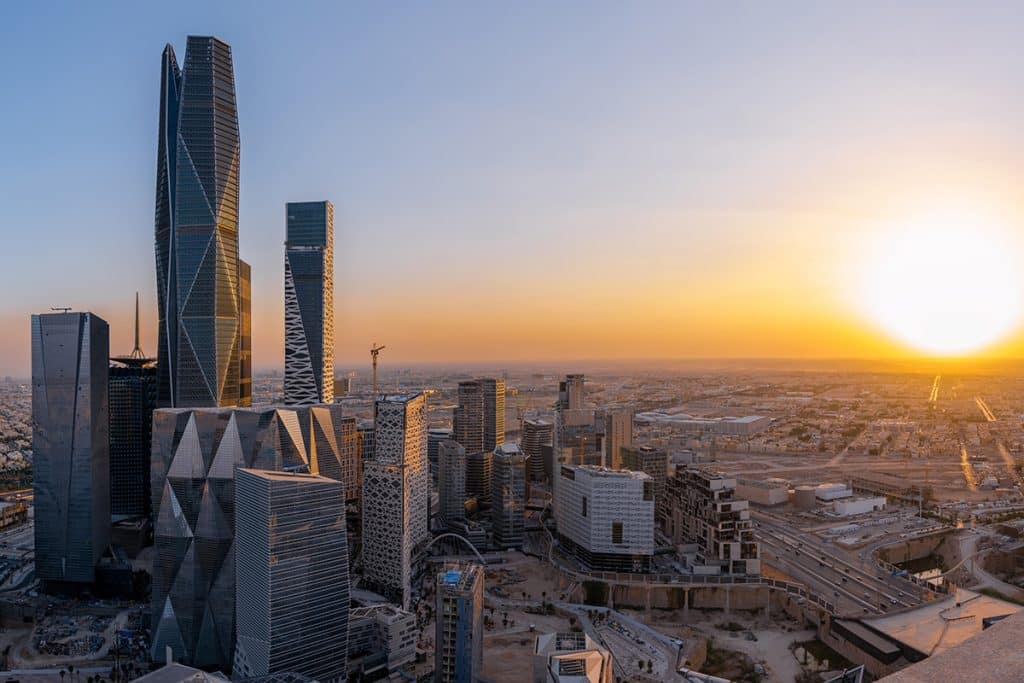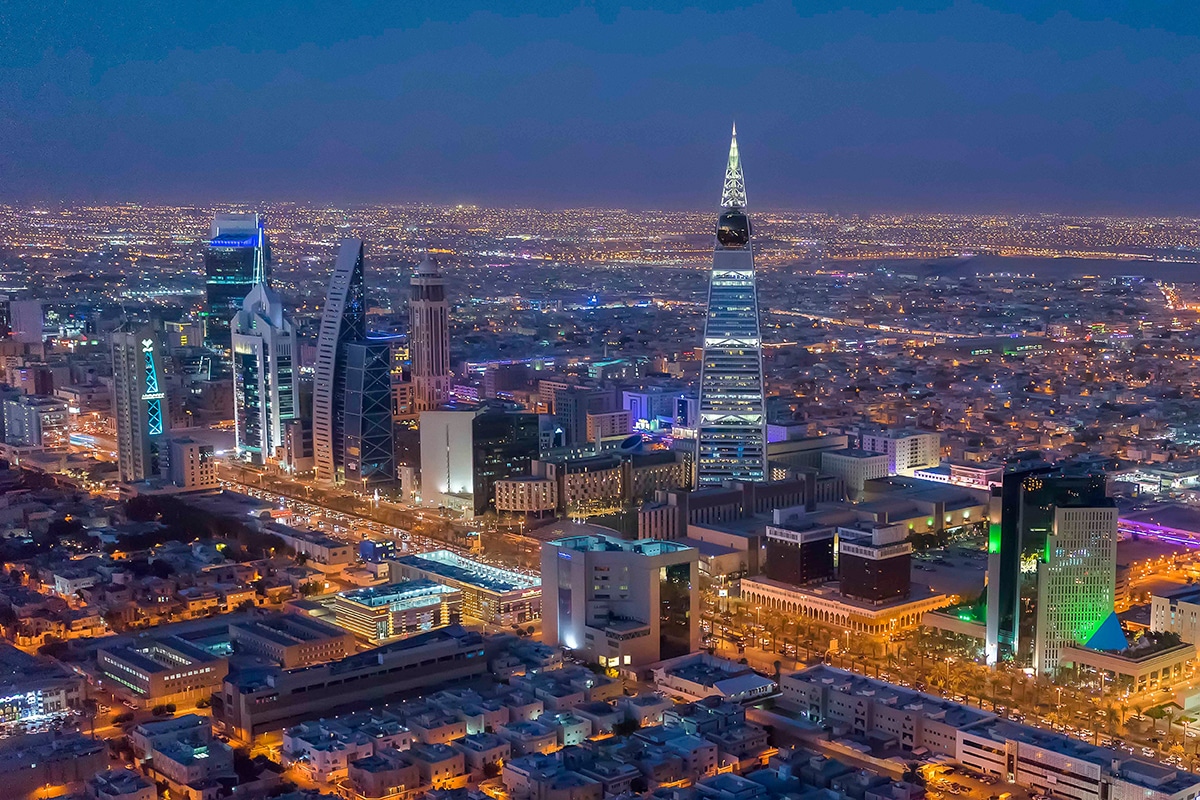Saudi Arabia’s real estate sector has seen continued growth in property prices and rent increases as investors capitalise on emerging markets and ongoing economic diversification in the Kingdom.
Guided by the ambitious Vision 2030 agenda of economic transformation and diversification, Saudi Arabia’s strategic initiatives and substantial investments in infrastructure developments and giga projects continue to drive growth and resilience in the Kingdom’s real estate market.
JLL’s latest KSA Real Estate Market Dynamics Report states that the residential and hospitality sectors stood out for their strong performance in H1 2024, supported by the government’s efforts to boost home ownership and the introduction of tourist visas, the expansion of entertainment offerings, and the promotion of sports and new experiences to position the Kingdom as a global leisure destination.
Saudi real estate 2024
The residential sector’s strong start in 2024 was marked by the delivery of 27,500 units in Riyadh and Jeddah in H1, increasing the total stock to about 1.46m units in the capital and 891,000 units in Jeddah.
Around 16,000 units each will be added to the stock in the two cities later this year.
Residential sale prices experienced a noteworthy 10 per cent year-on-year increase in H1 in Riyadh and average rents grew by 9 per cent annually.
In Jeddah, the pace of growth was slightly slower, with sale prices rising by 5 per cent and rents increasing by 4 per cent year-on-year during the same period.

Despite the rising construction costs and other challenges impacting the development of this sector, KSA’s residential market is on a positive trajectory toward further expansion and development.
Residential development in the Dammam Metropolitan Area (DMA) is shifting towards inland locations, with Khobar witnessing the majority of activity. Average sale prices have remained stable, while rents have seen a modest annual increase of 4 per cent.
As Saudi Arabia prepares to welcome 150 million visitors in 2030, the hospitality sector also witnessed impressive growth in H1 2024.
Year-on-year in the year to date to June 2024, Saudi Arabia’s average occupancy rate increased by one percentage point and its average daily rate (ADR) increased by 7 per cent, which resulted in its revenue per available room (RevPAR) increasing by 8 per cent.
In the Holy Cities of Makkah and Medina, KPIs have largely trended up year-on-year in the year to June 2024, where RevPARs increased by 4 per cent and 15 per cent, respectively.
Over the same period, in Riyadh, due to an increase in corporate visitation based on the centring of corporate events in the capital, we have seen ADR increase by 25 per cent.
The tourism industry’s leading role in Saudi Arabia’s economic diversification efforts cements a positive outlook for the hospitality sector with planned investments of $800bn over the next decade and a robust pipeline of flagship events such as the Asian Cup 2027, Asian Winter Games 2029, Expo 2030, and FIFA World Cup 2034.
The newly introduced star rating system is helping address short-term quality challenges and supporting long-term market improvement.

Based on insights gathered from industry sources and experts, JLL’s H1 2024 KSA report reveals that the office market remains competitive with landlords driving rental negotiations and new entrants establishing their presence in the Kingdom while existing tenants expand or upgrade their space.
Approximately 52,000 sq. m of office space was added in the capital city in H1 2024, resulting in a total existing supply of 5.2 million sq. m. while Jeddah maintained a stable total stock of 1.21 million sq. m.
Significant new supply, around 249,000 sq. m. in Riyadh and 48,000 sq. m. in Jeddah is expected in the latter half of the year. Office demand in the DMA is primarily being driven by government-related entities, leading to an increase of 10 per cent in average Grade A rents in the year to Q2 2024.
The demand for quality institutional grade properties soared especially in the northern region of Riyadh, which is less affected by traffic congestion issues, is easily accessible, and has high-quality office options.
Accordingly, average Grade A rents rose by 19 per cent y-o-y to SR2,090 ($557) per sq. m. per annum in the capital while in Jeddah, an 11 per cent annual increase saw average Grade A rents touch SR1,335 ($356) per sq. m. per annum.
The northern region of the capital also appealed to retailers who remained cautious of increased market competition and postponed expansion plans due to anticipated new market supply.
The noticeable shift in the retail sector towards experiential offerings reinforces the increasing preference for e-commerce in the Kingdom, which has adapted well to rapid socio-economic changes with the integration of cinemas, F&B, and entertainment facilities.

The retail market in Dammam and Dhahran is focused on super regional and regional malls, while Khobar offers a unique retail experience centred around the corniche.
While no major malls were completed in Riyadh during the first half of 2024, Jeddah expanded its retail space by completing several zones at Souq 7, adding 106,000 sq. m. and bringing the total supply to 2.16 million sq. m.
In Jeddah, average rents for super regional malls increased by 4 per cent y-o-y, while regional malls saw a 4 per cent decline. The sector is poised for a positive long-term outlook, although Riyadh’s retail space remained stable at 3.48 million sq. m., an additional 77,000 sq. m. is expected later in the year.
Saud Alsulaimani, Country Head, KSA at JLL, said: “The dynamic and fast-paced evolution of the real estate landscape in Saudi Arabia is marked by expansion and opportunities for growth as the Kingdom moves closer to achieving its Vision 2030 goals.
“The robust demand for properties across asset classes is boosted by a rise in population, infrastructure development, and strategic government-backed initiatives, accelerating unprecedented growth in the Kingdom’s real estate sector.
“The continued development will not only have a profound impact on the economic landscape but will also create sustainable and diversified opportunities across the real estate spectrum, positioning it for long-term resilience and success.
“Looking ahead to 2024, the key themes in KSA’s real estate sector will revolve around a focus on priorities, alignment, and collaboration between government projects. Effective engagement with the private sector will also be crucial, along with strategic talent management for sustainable growth.
“These initiatives will enable us to drive progress, foster innovation, and unlock the full potential of the Kingdom’s real estate industry”.






